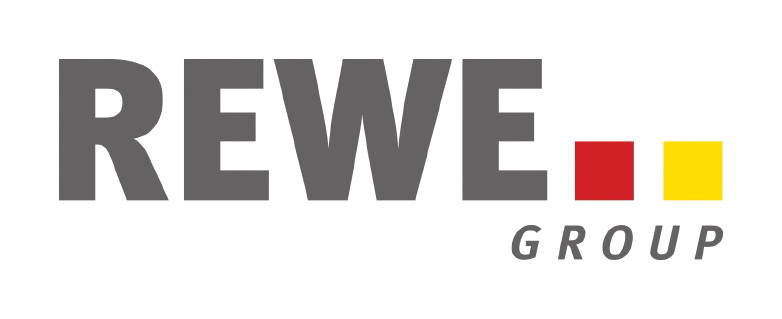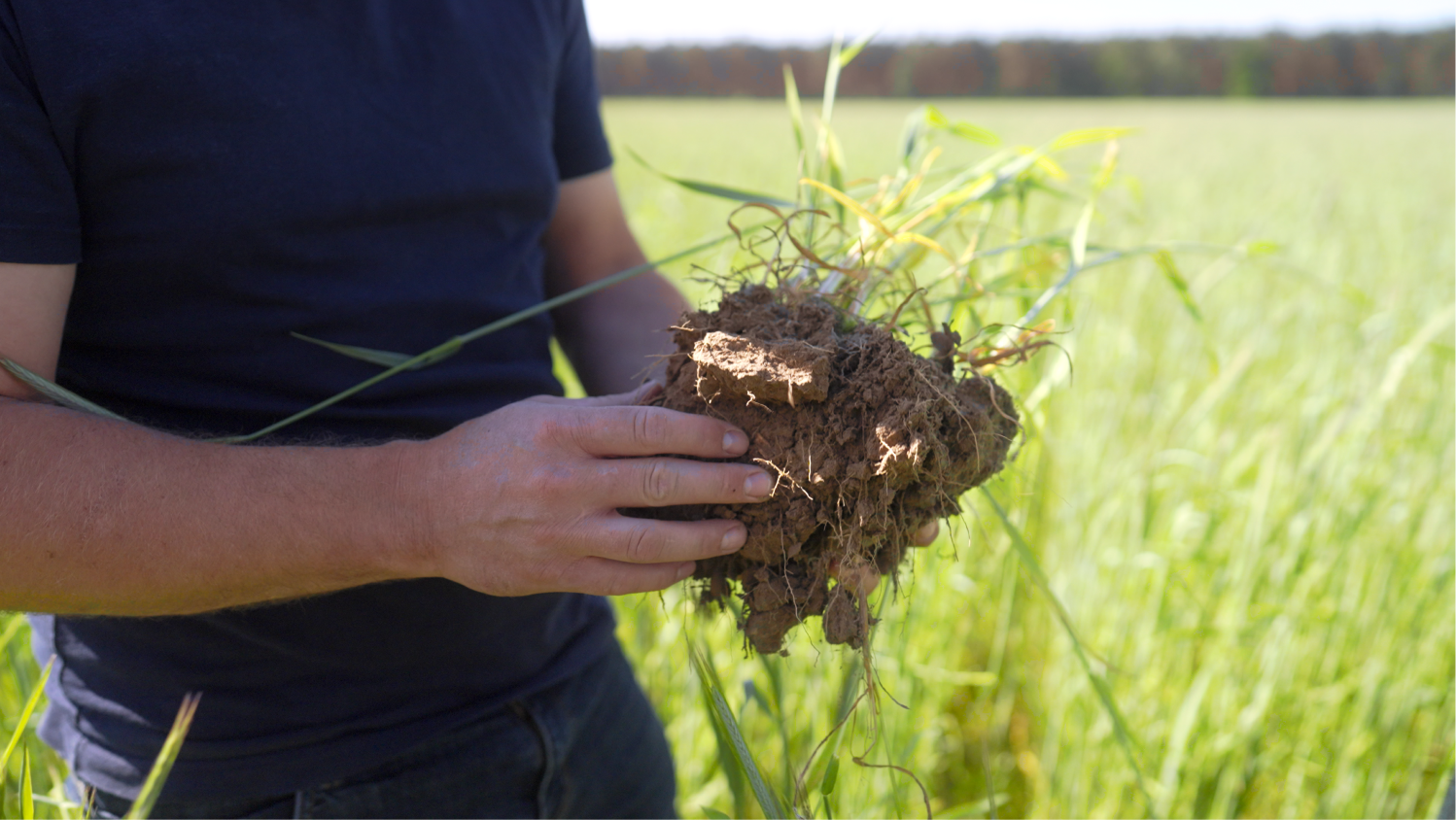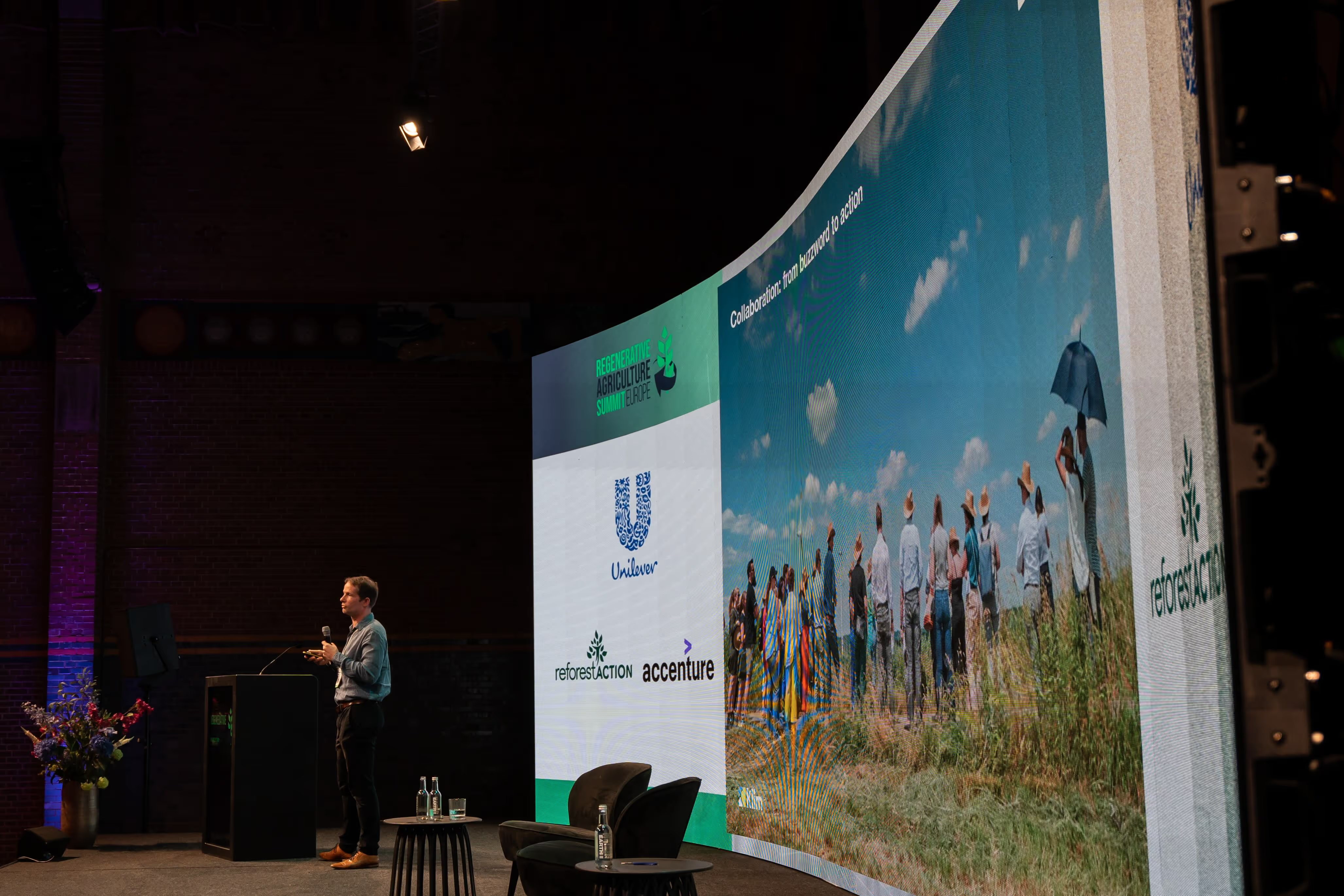
Scope 3 projects through regenerative practices
We help you build resilient supply chains from the ground up
Our partners:










Europe's Scope 3 provider

Securing your supply chain
through Scope 3 projects



95% of our food comes from the soil.
Scope 3 projects with Klim
Half of all species on our planet live underground.
Klim in numbers
Ready to take the next step?

Ready to take the next step?
FAQs
Farmers play a crucial role, because without them, no adjustments and improvements can be made. At the same time, the integration of regenerative practices helps to secure their business model in the long term. In order to successfully implement projects together, they must be individually tailored to the requirements and needs of the farmers.
Scope 3 emissions are those produced throughout the entire life cycle of products and services acquired by a company, including emissions related to long-term assets and investments not directly owned or controlled by the company.
The projects focus on the conservation, enhancement and restoration of natural habitats and integrate regenerative practices into business operations. They highlight the economic benefits of investing in nature and enable companies to integrate these investments into their broader sustainability strategies and goals.
The approaches future-proof supply chains and ensure consistent yields, improve relationships across entire supply networks and contribute to achieving sustainability goals.
Investing in regenerative agriculture helps to reduce emissions within a company's supply chain. The current VCMI policy on Scope 3 emissions allows companies to achieve part of their emission reductions through insetting projects. Thus, Klim's projects that implement regenerative agricultural practices fulfill the requirements to reduce Scope 3 emissions.
Klim acts as an all-in-one project manager and supports all parties in the implementation and scaling of regenerative agriculture by:
- Manage projects from start to finish
- Supporting the transformation process for farmers
- Ensuring the achievement of defined project goals
- Provide reports based on industry standards
Yes, Klim's Scope 3 projects can be used to achieve science-based targets if they take place within the supply chain or are linked to a supply shed, and meet the requirements of the SBTi Forest, Land and Agriculture Guidance (FLAG) and the Greenhouse Gas Protocol Land Sector and Removals Guidance (currently in progress).
Communicating measures to promote sustainability can be a challenge. We can help you create a compelling story with exciting stories from farmers, up-to-date project data and science-based facts to clearly communicate the importance of your investment.











%201.png)